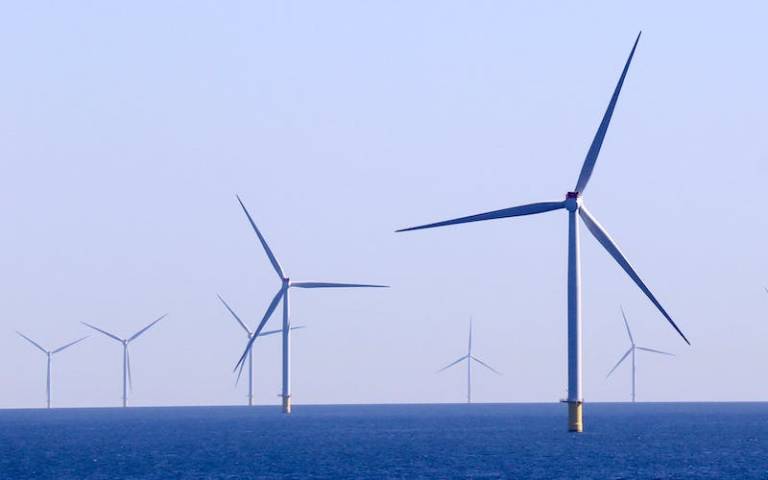Professor Paul Ekins publishes new book ‘Stopping Climate Change: Policies for Real Zero’
23 November 2023
New book provides a clear, thorough, up to date overview of everything you need to know about transitioning to ‘real’ zero, and what it’s going to take to get there.

We are delighted to announce the publication of Professor Paul Ekins’ book ‘Stopping Climate Change: Policies for Real Zero’ (Routledge, publication date November 23, 2023).
Paul is UCL’s Professor of Resources and Environmental Policy. He has been at the forefront of climate change policy research for 3 decades. An economist by background, in addition to publishing many books and papers, he has consulted at a high level for business, the UK Government, the European Commission and the UN Environment Programme. In 2015 he was awarded an OBE ‘for services to environmental policy’.
This book is a timely reminder that, if we act urgently, we can stop making climate change worse, and possibly reduce it, not only avoiding catastrophe but improving the quality of life globally.
‘Stopping Climate Change’ provides a clear, thorough, up to date overview of everything you need to know about transitioning to ‘real’ zero, and what it’s going to take to get there. Real zero refers to a policy position of reducing greenhouse emissions, especially CO2 emissions from fossil fuel use, to as close to zero as possible, rather than relying on capturing carbon or offsetting to achieve ‘net’ zero emissions.
If you’re someone who reads about seemingly disparate parts of the climate change challenge and wonders how it all fits together, it’s in this book – from climate justice to energy efficiency, investment in renewables to agriculture.
The book doesn’t shy away from some of the divisive and difficult issues in our approach to climate change. One key challenge covered in detail is removing CO2 already in the atmosphere, including retaining systems (like our rapidly depleting forests) which currently remove and store carbon. This is clearly differentiated from carbon offsets – where purchasers buy ‘removal’ of carbon dioxide in order to continue highly polluting activities. Paul Ekins noted:
“The evidence is now overwhelming that the great majority of so-called ‘carbon offsets’ are nothing of the kind - in fact we may well see emissions rising even as the sale of carbon offsets increase. Removing CO2 from the atmosphere should be pursued as an entirely separate policy agenda and priority from emission reduction.
What’s clear is that we have a lot of the policies, technologies, resources and ideas we need. The challenge remains their large scale and speedy deployment, with not only governments but society as a whole committing fully to addressing climate change.
Paul notes:
“While I have been working on these issues for a long time, the immediate trigger for the book was coordinating the Bartlett’s ‘Together for Climate Action’ campaign in the run-up to COP26 in Glasgow in autumn 2021. Research for the book convinced me that we can stop the human contribution to climate change and create a liveable planet and healthier future. The major pre-condition for this is that we get the global fossil fuel industry under control, and commit to the complete phase out of fossil fuel use as quickly as possible and certainly by 2050.
‘Stopping Climate Change’ has received a large number of endorsements from world leading experts in the field. Karen Ellis, Chief Economist at WWF-UK noted:
“What a tour de force! An amazingly comprehensive, cohesive and insightful analysis of what’s needed for net zero and the current state of play on all these solutions.
Links
- Buy the book now - access this external webpage.
- Read more of Paul Ekin's work - https://profiles.ucl.ac.uk/3907-paul-ekins/publications.
- Read the latest policy publications from the UCL Institute for Sustainable Resources: access this UCL webpage.
Image credit: pexels.com; Routledge
 Close
Close

